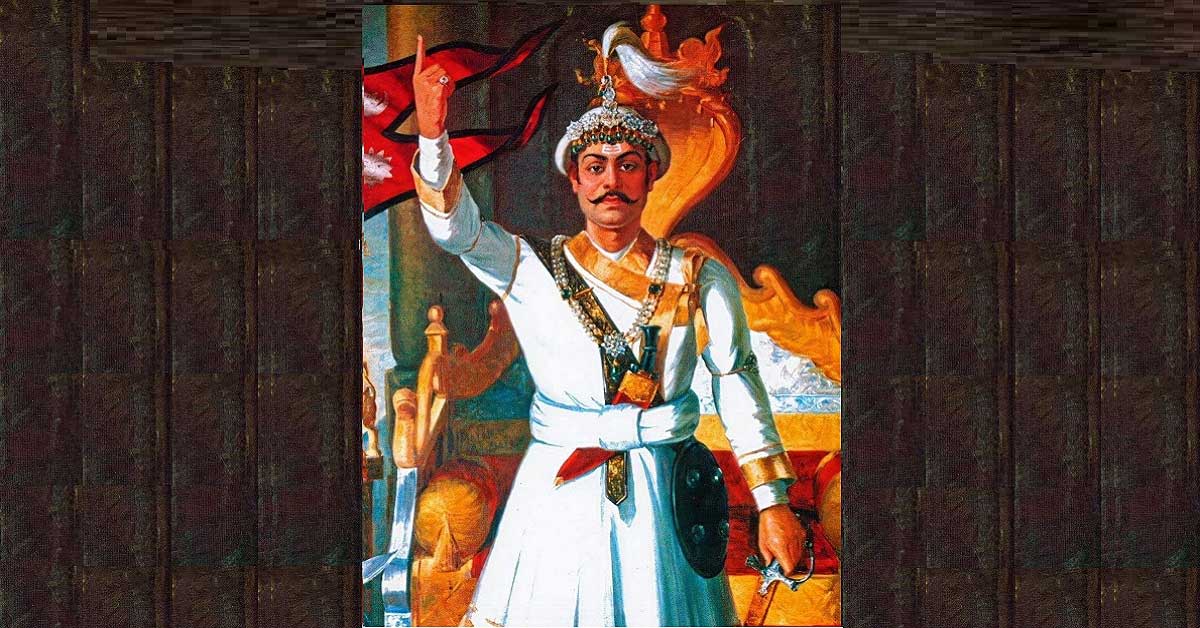
Prithvi Jayanti and National Unity Day in Nepal
Nepal marks a significant day in its history with the celebration of Prithvi Jayanti and National Unity Day (Rastriya Ekta Didwas). This day commemorates the 302nd birth anniversary of King Prithvi Narayan Shah, a pivotal figure in the nation's history. It's a time for the country to reflect on its unity and cultural heritage.
This day symbolizes the unity and rich heritage of Nepal, honoring the king who played a crucial role in unifying the country. Across the nation, various cultural and educational programs are organized by esteemed institutions, reflecting on the visionary leadership of King Prithvi Narayan Shah. His legacy, marked by the unification of Nepal and territorial expansion, continues to resonate in modern Nepal. The observance of this day serves not only as a tribute to a pivotal figure in Nepal's history but also as a celebration of national unity, fostering a sense of pride and solidarity among the Nepalese people. This event aligns with the principles of unity, cultural preservation, and national identity, making it a significant day in the Nepalese calendar.
The unification of modern Nepal, a monumental endeavor initiated by King Prithvi Narayan Shah in 1744 A.D., marks a significant chapter in the nation's extensive history. This strategic campaign commenced during the 18th century, a period characterized by the colonization of smaller kingdoms by Western powers. King Prithvi Narayan Shah, originating from the small kingdom of Gorkha, embarked on a mission to consolidate the fragmented landscape of Nepal, which included 46 states in the Gandaki and Karnali provinces, numerous hilly states east of Kathmandu Valley, and the kingdoms of Makwanpur, Bijayapur, and Chaudandi in the southeastern Tarai.
His approach to unification was notably humane and strategic, minimizing loss of life and property. Force was used selectively, primarily against states resistant to integration. Those who agreed to amalgamate with the Gorkha kingdom received fair treatment, sparing the populace the hardships typically endured by the vanquished in that era. King Prithvi Narayan Shah's exceptional ability to integrate and adopt the cultures of conquered regions, as exemplified by his assimilation into Newari culture and reverence for Goddess Kumari, further highlights his acceptability and adaptability as a ruler.
A key aspect of King Prithvi Narayan Shah's leadership was his non-discriminatory policy towards his subjects. He upheld equality among all castes and social classes, treating the rich and poor alike. His consultative approach to governance, seeking counsel from a diverse range of advisors including Bishe Nagarchi, a man of low social standing from Gorkha, underscores his inclusive philosophy. This egalitarian mindset is encapsulated in his famous quote, “Yo desh chaar jaat chhatis barna ko phulbaari ho,” meaning, "This country is like a garden of different varieties of flowers," symbolizing his view of all citizens as equal, regardless of their caste or status.
In choosing key officials like his chief minister or military chief, King Prithvi Narayan Shah relied on public opinion rather than favoritism, demonstrating his commitment to fair and representative governance. His leadership not only unified Nepal geographically but also fostered a sense of national cohesion and equality, laying the foundations for the modern Nepalese state.
Key Highlights of the Celebration
- 302nd Birth Anniversary of King Prithvi Narayan Shah: This day marks over three centuries since the birth of King Prithvi Narayan Shah, born on 27 Poush 1779 BS.
- National Unity Day: There's a growing call to recognize Poush 27th as National Unity Day, emphasizing the importance of this date in Nepal's history.
- Cultural and Educational Programs: Various esteemed institutions like Nepal Pragya-Pratishthan, Nepal Lalitakala Pratisthan, and others are hosting cultural events to honor this day.
- Nationwide Celebrations: Across the country, various organizations are hosting events to honor Prithvi Jayanti, showcasing the rich cultural diversity of Nepal.
Historical Significance of King Prithvi Narayan Shah
- Visionary Leadership: Prithvi Narayan Shah's Dibya Upadesh, reflecting his foresight and vision, remains relevant in contemporary Nepal.
- Unification of Nepal: Under his reign, Nepal transformed from 52 principalities into a unified state.
- Expansion of Territory: He extended Nepal's borders significantly, marking a critical phase in the nation's history.
Impact and Legacy
The legacy of King Prithvi Narayan Shah is evident in modern Nepal. His vision and leadership played a crucial role in shaping the nation's identity. Celebrating his birth anniversary is not just about honoring a historical figure; it's about recognizing the importance of unity and cultural heritage in building a strong and resilient nation.
Public Engagement in Celebrations
- Cultural Performances: The National Dance Hall in Jamal will present various cultural programs at 2:30 pm, showcasing the vibrant traditions of Nepal.
- Educational Insights: Discussions and presentations on Prithvi Narayan Shah's teachings and philosophies provide educational value to the celebrations.
Conclusion
The celebration of Prithvi Jayanti and National Unity Day is a testament to Nepal's rich history and cultural diversity. It's an opportunity for the nation to come together, remember its roots, and look forward to a united future. This day serves as a reminder of the importance of visionary leadership and the value of cultural heritage in shaping a nation's identity.
Festival Annual Day




